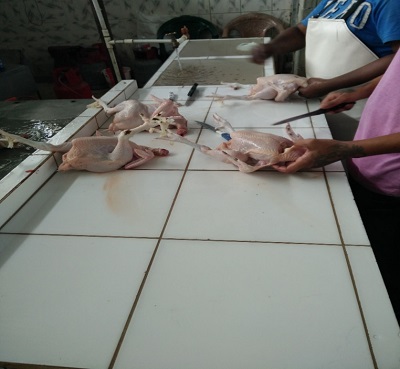
Anisa S. Khan
University of the West Indies, Trinidad and Tobago
Title: Prevalence and characteristics of Salmonella spp. in chickens slaughtered at small retail processors (‘pluck shops’) in Trinidad and Tobago: Potential food safety risk to consumers
Biography
Biography: Anisa S. Khan
Abstract
Statement of the Problem: Salmonellosis is an important foodborne disease worldwide, responsible for gastroenteritis and other ailments in animals and humans. Poultry is considered an important reservoir of Salmonella spp. Small retail processors called pluck shops are widely patronized as sources of dressed poultry across Trinidad and Tobago. To date, there is a dearth of up-to-date information on the prevalence of Salmonella spp. from poultry and the prevailing serotypes. This study was conducted to determine the prevalence of Salmonella spp. in dressed chickens (whole or parts) sold at selected pluck shops in counties across the country, to identify the risk factors for carcass contamination and to determine the Salmonella serotypes.
Methodology: In this cross-sectional study, 133 dressed whole chickens and 87 chicken parts were sampled across 44 outlets in 7 counties between April and December 2016. Isolation and identification of Salmonella spp. were performed using standard techniques.
Findings: The prevalence of Salmonella spp. was 20.5% (45/220). The frequency of isolation of Salmonella spp. was 22.4% (26/116), 23.0% (17/74), 7.1% (1/14) and 10.0% (1/10) for fresh whole, fresh chicken parts, chilled whole chicken and chilled chicken parts respectively. Salmonella spp. was recovered at a rate of 2.3% (5/220) and 9.5% (21/220) by the rinse and swab methods respectively. Among the isolates serotyped the predominant serotypes were Kentucky (30.0%), Javiana (15.0%) and Aberdeen (15.0%). Sanitation scores based on practices by handlers of chickens at outlets, conditions of bird cages, practices in defeathering, evisceration, packaging and sale, did not appear to affect the frequency of isolation of Salmonella spp. Data from the study indicate the extent of contamination by Salmonella spp. in the selected pluck shops studied and, of significance is the risk of salmonellosis posed to consumers of contaminated chickens sold at the pluck shops in the country.

Processing of broiler chickens at a “pluck shop” in Trinidad and Tobago

